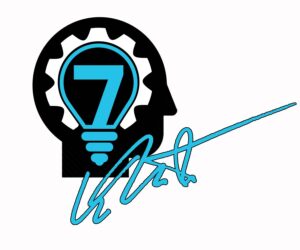I could spend all my time discussing sales – I love sales.
I know what you’re thinking. OMG – he’s one of “those” guys.
No, I’m not.
I began my education in college as an engineer, mechanical engineer, actually. How many engineers do you know who are good at sales? Okay, maybe a few. But to make things worse, I didn’t stay with engineering, I changed my major to psychology. That alone should convince you that I didn’t have any predetermined inclination towards sales. As a kid, the only thing I ever sold was 10 Scout-a-Rama tickets – that was my claim to sales fame at that point in life.
The field of sales is full of misunderstandings. How much do you like to be sold something?
Not. At. All.
Nobody likes it. As a matter of fact, we work to avoid being sold something, don’t we?
Business owners see sales as a necessary evil, right? We’ve got to hire those egomaniacs to go sell our stuff so we can make money. Or worse, we are so kind-hearted and worried that customers won’t like us so we actually don’t sell our products/services.
I see it all the time. Like the grade school playground at recess. The bullies on one side holding the dodge balls and the quiet kids standing up next to the wall hoping it will be quick and relatively painless to get hit “out”, meanwhile praying recess will be over soon. Business owners tend to struggle with figuring out which side of the sales game they are on and which side they should be on.
Here’s a new thought: Don’t choose either.
We all hate to be sold, but you know what, we all love to buy. Think about it for a minute. Isn’t there something that you enjoy buying? Electronics, new phones, clothes, shoes, cars, watches, tools, kitchen appliances, toys, books, fishing poles, or some fun things? Of course! Because you’re human.
So if people hate to be sold, but love to buy, how can we use that understanding to benefit our customers?
That’s why I love sales because I had the benefit of learning very different approaches to how to succeed in “sales” but from a blend of engineering and psychology. And here’s the GREAT NEWS: it’s simple to learn how to do it yourself for your customers with your employees in your market!
Your approach to sales needs to be congruent with your approach towards your customers. And it needs to be authentic to your personality and values as well.
Often sales “gurus” I will advise business owners on how to desensitize their empathy for the clients. Their buzzwords are: Always Be Closing (ABC’s), Handle Objections, Sell-Sell-Sell, Close-Close-Close. They teach how to manipulate customers into spending more and spending now.
A real and experienced business coach will help you build an intentional conversation around your client’s normal buying processes and show you how to assist them in reaching an informed and professional decision point. With this approach, potential customers who decide to not buy today will still feel welcome to buy in the future because they won’t feel like they just spent four hours being harangued at a used car lot.
Your customers are part of your community, and this is the community you have to live inIN…your children may attend school at the same school as their children, you may go to church together, you may live in the same neighborhood and most importantly, you have to sleep well at night.
The 7th Gear Sales System enables clients to build a sequential conversation around the normal and predictable needs of the buyer in the buying process. We throw out manipulative tactics and focus on an end result that any proficient salesperson can accomplish.
The key is to focus on the event of the decision and there are seven clear steps to help a client reach an informed point of decision and three simple principles to implement to guide your sales staff to new levels of success. PreDecisioning, Incremental Decisioning, and Intentional Decision Moments. Yes’s are Great, No’ are Good, but Maybe’s mean you didn’t do your job – it’s as simple as that.
If your product/service does what it’s supposed to do, is reasonably priced and you do a clear job communicating how it benefits your customers, the “Yes’s” take care of themselves, the “No’s” are easy to deal with and the “Maybe’s” are minimized.
Teaching your sales department to effectively focus on an outcome they can control is the key to long-term sales success. 7th Gear Coaching can help you learn how to implement this in your business!.
Self Diagnosis Tool:
Indicators that your Sales Gear is out of sync with the rest of your Operation.
*Your operational/admin employees avoid or have conflicts with your sales department regularly.
*Your fulfillment employees are regularly frustrated with your sales department because things have been over-promised.
*You don’t have clear and simple operational reports showing you what funnel activities your sales department has accomplished daily.
*Your financial employees show that discounts or rebates are commonly used to either gain sales or to appease customers who’ve had a bad experience.
*You believe that salespeople are a necessary evil, and you employ aggressive and ego-driven employees who you wouldn’t want to invite to your own home.
*You will see out-of-sync sales problems primarily in your Fulfillment, Management, and Operational Gears…since they are immediately “downstream” from your Sales Gear, but these issues will show up everywhere in your business. Depending on your marketing methods, you can see evidence of out-of-sync sales issues with a frustrated marketing department.











